
Economics Professor Breaks Down Differences in Harris and Trump Economic Plans on News12 Westchester
Clinical Associate Professor of Economics Mark Weinstock, MA, appeared on News12 Westchester to weigh in on the similarities and differences between the economic plans and platforms of US presidential candidates Kamala Harris and Donald Trump.
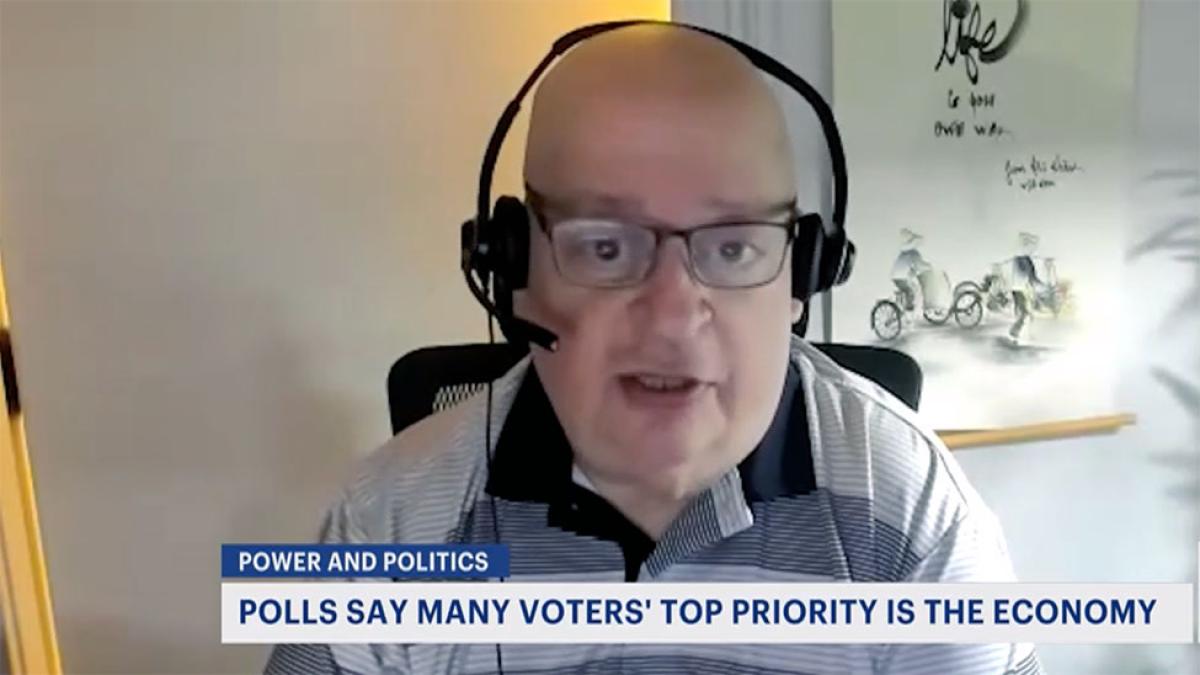
On the similarities between their economic plans, he cites that both of them now seem to be supportive of electric vehicles, although Harris by a much greater extent; they are also similar on housing, in the sense of a focus on affordable housing for first-time buyers, although with significantly different approaches; and also pledge no cuts on Social Security, Medicare, and Medicaid entitlement structures, with again, greatly different approaches on how to repair the weaknesses and deficiencies; they also share protectionist trade policies, with Trump being more intense in his viewpoint.
According to Weinstock, the greatest difference among the two candidates is on the topic of taxes.
“Trump tax cuts which occurred in 2017 are due to expire at the end of next year, 2025, and Trump would propose to extend those tax cuts and perhaps even cut more, such as cutting the corporate income tax rate from 21 to 19 percent. On the other hand, Harris would repeal many of the Trump tax cuts, especially for people making over $400,000 per year. She would also raise the corporate income tax rate from the current 21 percent to 28 percent and I believe that she would be more aggressive in expanding the earned income tax and child tax credits.”
An Ethics Expert’s Perspective on AI and Higher Ed
With AI increasingly influencing how we learn and work, Dyson Professor of Philosophy James Brusseau, PhD, offers a thought-provoking perspective, diving into the philosophical and practical implications of AI in the classroom.
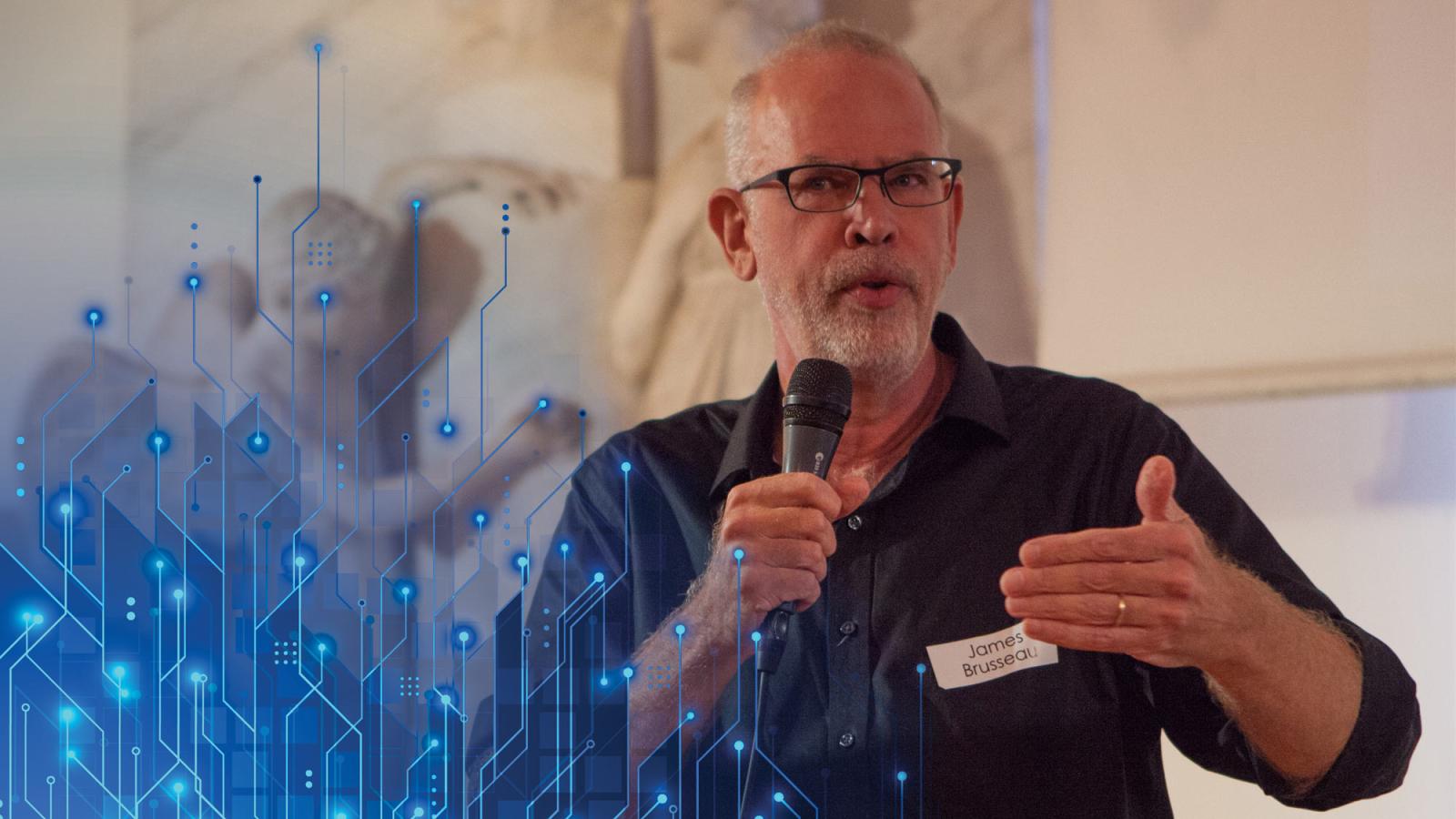
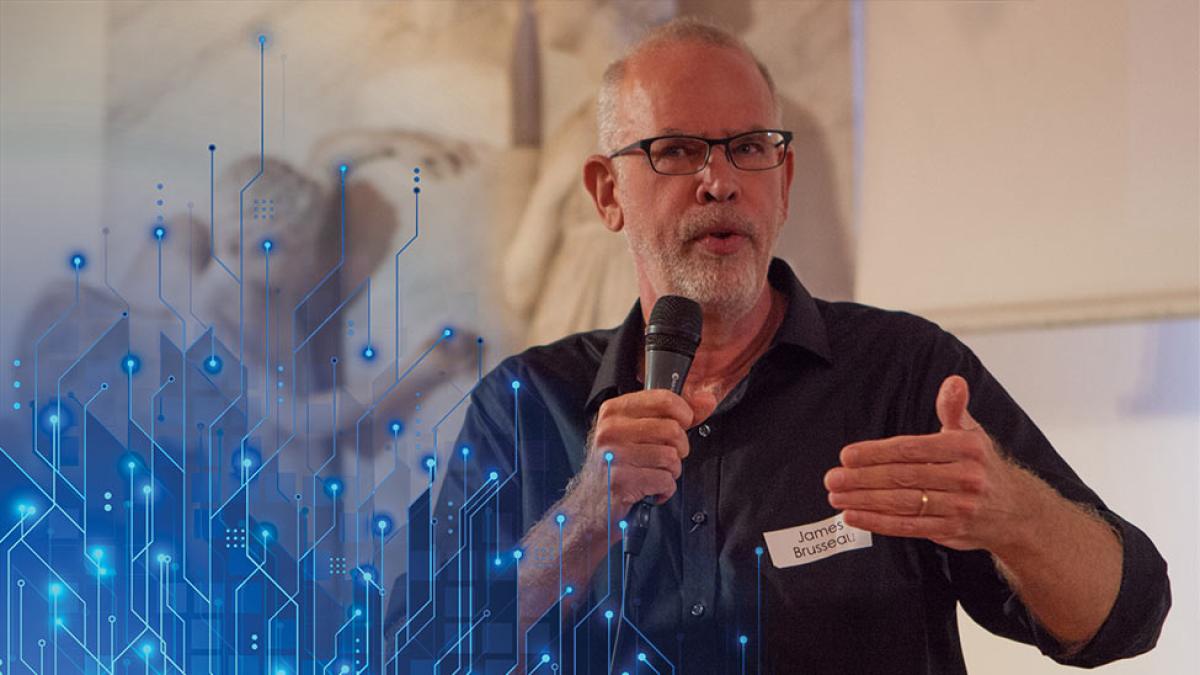
As a scholar deeply immersed in both technology and philosophy, James Brusseau, PhD, has spent years unraveling the complex ethics of artificial intelligence (AI).
“As it happens, I was a physics major in college, so I've had an abiding interest in technology, but I finally decided to study philosophy,” Brusseau explains. “And I did not see much of an intersection between the scientific and my interest in philosophy until all of a sudden artificial intelligence landed in our midst with questions that are very philosophical.”
Some of these questions are heavy, with Brusseau positing an example, “If a machine acts just like a person, does it become a person?” But AI’s implications extend far beyond the theoretical, especially when it comes to the impact on education, learning, and career outcomes. What role does AI play in higher education? Is it a tool that enhances learning, or does it risk undermining it? And how do universities prepare students for an AI-driven world?
In a conversation that spans these topics, Brusseau shares his insights on the place of AI in higher education, its benefits, its risks, and what the future holds.
What is AI's place in higher education?
I do have an opinion on higher education and AI, and it's controversial, but on this matter, all opinions are controversial. I think, at this point, it's my instinct to say that AI—more than anything else—is just a tool. That is, I do not think it is capable of producing thought as you and I do.
For example, when you look at AI-generated art, there's always some little tell that it's machine-made. There'll be six fingers on a hand, or it’s too perfect, or too symmetrical. The human eye can detect when AI has created art. And I think that of course AI will constantly get better, but I think there will always be that sense that you and I will have that an artificial intelligence has created art.
I think that if AI alone is the professor, then the knowledge students get will be imperfect in the same vaguely definable way that AI art is imperfect.
And I think that that’s also true for knowledge—knowledge about philosophy, about journalism, knowledge about the kinds of things we teach at Pace. I think that if AI alone is the professor, then the knowledge students get will be imperfect in the same vaguely definable way that AI art is imperfect.
My broad opinion is that AI is just a tool. It's not actual intelligence itself. And for that reason, its effects in higher education will be somewhat limited, though I think that in a couple of ways, they’ll be very significant.
What are some of the benefits of integrating AI in learning?
AI, at least in my experience, allows us to learn about things very quickly. I mean, I just know in my professional work, I'm asking fairly specialized questions.
For example, I'm writing a paper now about art and creativity, and I was writing about an author called Walter Benjamin, who is a fairly narrowly known philosophical writer, and I asked ChatGPT a very specific question about what this author thought about a specific painting, and it gave me a good answer. And I checked a book I have on the author to make sure, and it was right.
So one thing that AI will do is provide very specific and personalized information for students and professors very quickly.
What are some of the concerns about AI in higher education?
I think that is fairly clear: It's the over-reliance on AI. I have already seen students relying on it for their work. Sometimes students forget that professors, like me, were also students once in the past. And so, they don't imagine that when I write an exam, I might give that exam to ChatGPT to see what ChatGPT says. And then when the student does the same thing, right away I can see that they have used AI, because I got almost exactly the same answer from ChatGPT.
I think that the risk of AI is that the students will become sloppy, they will become careless. They will let AI, in essence, do their work. And I think that's a legitimate downside.
How can universities and professors assess true student understanding of a topic or concept?
It’s my belief that oral exams will make a comeback. During my summer semester at the University of Trento in Italy, we had, for the first time, purely oral exams for my classes. For the midterm exam, I had the students gather into groups and do presentations on AI ethics and then for the final exam, I had each student do a presentation alone.
So one thing that AI will do is provide very specific and personalized information for students and professors very quickly.
That kind of just human interaction, I think, one, it's a very good learning experience for the student. It's hard to stand up in front of your colleagues and talk, it's a learned skill. I think that we should promote that more going forward.
But I think also, two, that's a way to discover whether or not the student actually learned and did the work. And when students know that there is an oral exam at the end, I think that will in some sense force them to do more of the learning. And I think that will help students focus learning from AI instead of letting AI do the learning for them.
What do you think will be the overall impact of AI on student learning?
I think that the big change that we're going to see from AI is not so much in how education works, but how students, more than ever, are going to be responsible for their own education. Students who want to learn a lot are going to be able to learn more, faster. However, students who are clever and really just want to get through, I think they are also going to be empowered to do that in numerous ways.
For example, part of what is discovered in the traditional research process is tangential to the initial goal. If a student wants to write about how previous scholars have understood the idea of privacy, they will need to comb through several texts and likely make some unexpected discoveries about the subject. But, with ChatGPT, they can go directly to the required information. That helps with their grade, but detracts from their intellectual curiosity.
Students, more than ever, are going to be responsible for their own education.
In education, I think we're going to see a growing level of inequality in outcomes. Some students are going to graduate with educations that are pristine, that are at levels that could not have been even reached 20 years ago, because they will have been able to use AI to research so deeply into a subject they enjoy. But I’m afraid, we are also going to see some graduates who have been able to fake it, in essence, the whole four years.
There are a lot of fears about AI taking jobs. What are your thoughts on how AI will affect career opportunities?
There will be some transformation in jobs. Jobs will change. But just my own experience tells me that there's more opportunities than losses.
Let me give you an example. Seidenberg’s Christelle Scharff and I wrote a paper about how AI can be used to help clothing designers produce new kinds of clothes. A really interesting application. I never would have thought of that. People think about AI for doing healthcare. They think about AI for making weapons and destroying the world and that kind of thing. But I never would have thought about artificial intelligence and clothing design.
So, this is a terrific opportunity for someone from Pace. We have courses on design and the arts, and we have a computer science school. That's an opportunity for someone from Pace to create a kind of job for themselves, right? So, my sense is that AI will do more of that creation than destruction. Of course, there will be destruction, but for people who are ambitious and creative, I think the opportunities are there.
Want to join the AI discussion? RSVP for the upcoming AI user groups kickoff meetings, a new initiative from the Provost's Committee on Artificial Intelligence.
Texting and Self-Confidence: New Study from Psychology Professors Hassinger-Das and Trub Reveals Impact on Introverts and Extroverts
Associate Professors of Psychology Brenna Hassinger-Das, PhD, and Leora Trub, PhD, along with Paulette Didia, PsyD, a licensed clinical psychologist, co-authored a study, “Stuck in the DMs: The Association between Introversion/Extraversion and Self-Confidence through Text-Based Communication,” in Psychology of Popular Media, about how the impact of texting affects both introverts’ and extroverts’ self-confidence.

Associate Professors of Psychology Brenna Hassinger-Das, PhD, and Leora Trub, PhD, along with Paulette Didia, PsyD, a licensed clinical psychologist, co-authored a study, “Stuck in the DMs: The Association between Introversion/Extraversion and Self-Confidence through Text-Based Communication,” in Psychology of Popular Media, about how the impact of texting affects both introverts’ and extroverts’ self-confidence.
Hassinger-Das and Trub both teach courses in the BA in Psychology program on the New York City campus. Their study sheds light on how the motivations behind texting — whether to express oneself or to escape from reality — might influence the self-confidence of individuals with varying degrees of introversion or extraversion. The findings reveal some surprising relationships between personality dispositions, texting motivations, and self-confidence. They aim to explore whether the reasons people use texting—either to express themselves or to escape from uncomfortable situations—might alter the relationship between personality traits like introversion or extraversion and self-confidence.
In an article on MSN about the study, Trub said “In a world where people are constantly looking for simple answers and solutions (e.g. Is technology good or bad?), the fact is that the impact of technology (and in this study, texting specifically) differs based on the interaction between multiple things (in this study, personality characteristics and people’s motivations for texting).”
Dr. Scharff’s Summer of AI: Seidenberg Professor Achieves New Academic and Industry Successes
Dr. Christelle Scharff, Seidenberg Professor, Associate Dean, and Co-Director of the Seidenberg AI Lab, has had quite a busy summer by marking several significant achievements that reflect her expertise in AI research and innovation.

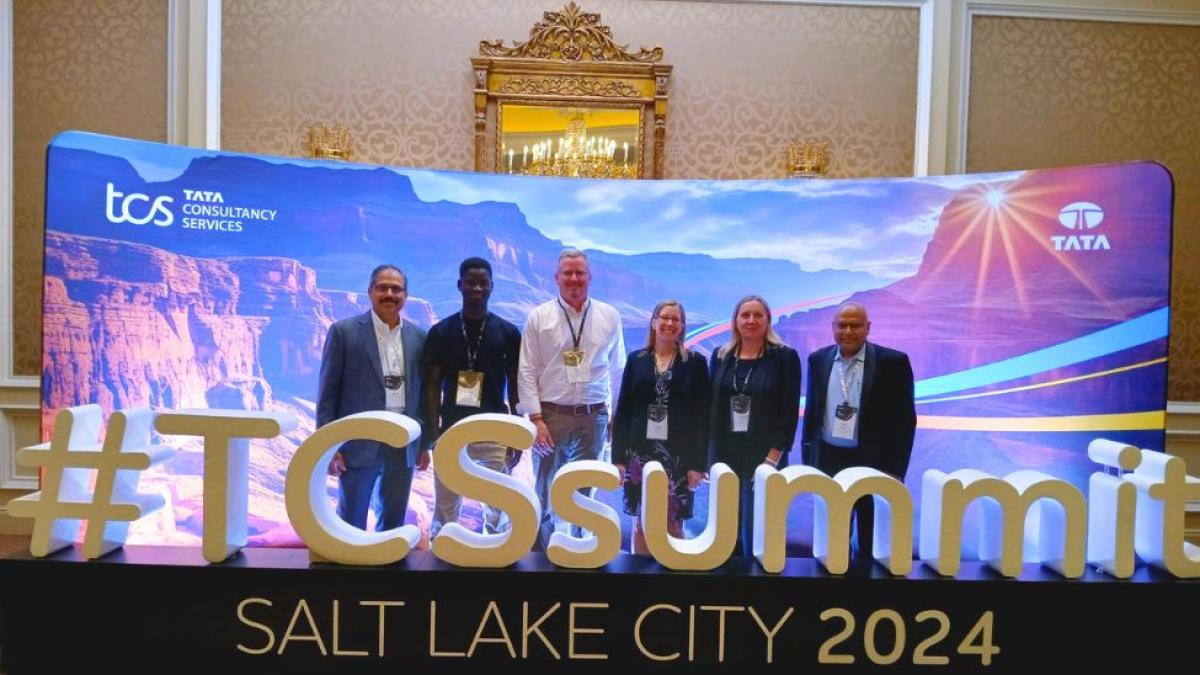
Dr. Christelle Scharff, Seidenberg Professor, Associate Dean, and Co-Director of the Seidenberg AI Lab, has had quite a busy summer by marking several significant achievements that reflect her expertise in AI research and innovation, as well as her active engagement in global academic and professional communities.
Dr. Scharff represented the Seidenberg School and Pace University at the prestigious Tata Consultancy Services (TCS) Summit in Salt Lake City. Themed "The Future is AI. The Future is Human," the summit brought together industry leaders, technologists, professional athletes, and academics to explore the work of TCS in many different industries, including education. The main emphasis of the summit was sport and its many dimensions, and attendees had the unique opportunity to interact with Olympic champions such as Lindsay Vonn and John Shuster. Dr, Scharff said that "as a sports fan, it was a thrill to stay in the Olympic spirit of Paris 2024, and even try my hand at curling!" She added that she was honored to meet so many TCS employees and partners, and to exchange ideas about the intersection of artificial intelligence and human-centered innovation.
In addition to her active participation in international summits, Dr. Scharff's commitment to advancing AI research continues to gain recognition. Her latest collaborative research paper written with Seidenberg students Samyak Rakesh Meshram, Krishna Mohan Bathula, Fnu Kaleemunnisa, and Om Gaikhe, and titled "Towards AI-Generated African Textile Patterns with StyleGAN and Stable Diffusion," has been accepted for publication and will be presented at the upcoming International Conference on AI-based Systems and Services (AISys) in September.

The research paper explores the generation of African wax designs using advanced AI architectures like StyleGAN2-ADA, StyleGAN3, and Stable Diffusion. The study leverages a curated synthetic dataset of 2,000 images and evaluates the designs using Fréchet Inception Distance (FID). The findings highlight the potential of these AI models to generate culturally relevant and aesthetically appealing textile patterns, with a focus on both symmetry and creativity.
"By providing a new tool for creating customizable wax designs, this study has the potential to make an impact on the fashion industry," the abstract notes. "It also shows that the suggested approaches are promising to produce a variety of plausible and culturally appropriate designs. Our next step is to collaborate with African fashion designers and wax experts to validate the resulting designs."
Opinion - The Federal Government’s Financial Aid Failure Is A Disgrace
Pace President Marvin Krislov continues to be outspoken about issues with the new Free Application for Federal Student Aid (FAFSA) form, and in a letter to the Washington Post editor, he urges colleges to step up to make sure families understand the educational opportunities available to them.
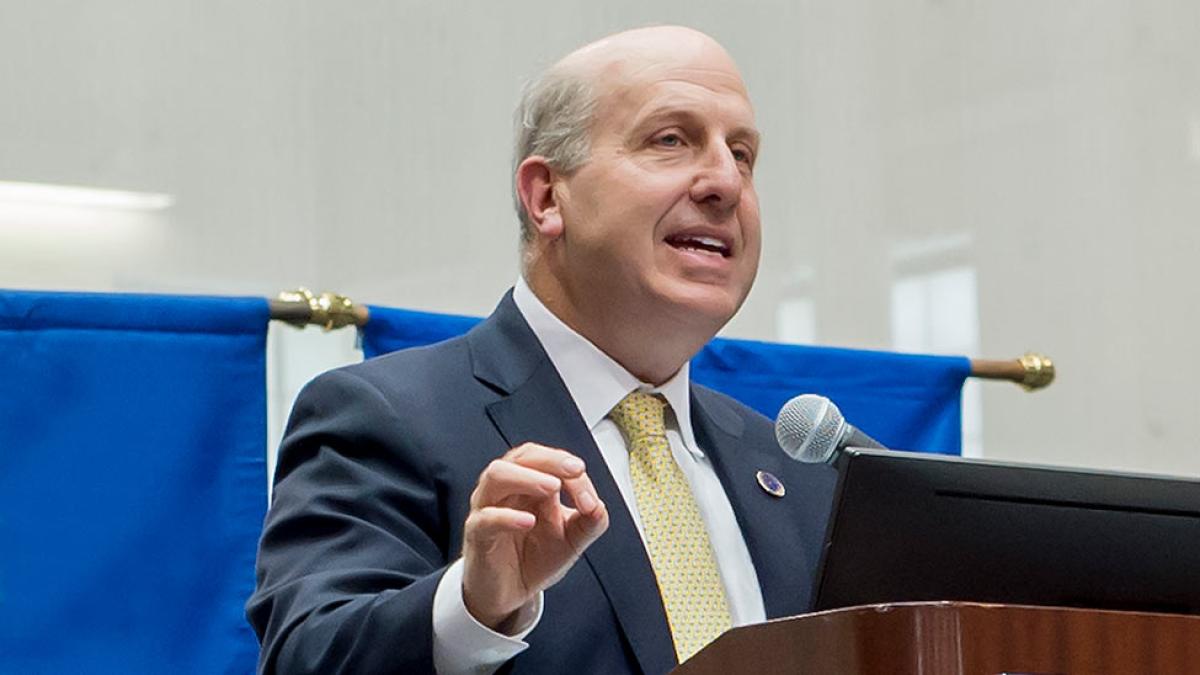
How Celebrities Impact U.S. Elections
Dyson Professor Melvin Williams joined CBS News to discuss how celebrities like Oprah and Hulk Hogan impact politics, a trending topic this election season. Professor Williams continues to share his insights regarding this topic with multiple media outlets, including Vox and CBC Radio-Canada.

What Parents Should Know Before Sharing Back-To-School Photos Online
Seidenberg Professor Darren Hayes provides cybersecurity advice to Good Morning America about what parents should consider before posting back-to-school photos online.
Nearly 50 Colleges Across New York Best In America
The Hudson Valley Post reports that Pace University is among the nearly 50 colleges in New York, and among only 15 percent of U.S. Colleges that made the national list, highlighted in the Princeton Review 2025 "Best College" rankings.
Fans Suspect Taylor Swift Just Subtly Addressed Donald Trump's AI Image Scandal in New Statement
Elisabeth Haub School of Law Professor Leslie Garfield Tenzer speaks with Forbes where she discussed how Taylor Swift could sue Trump for using her likeness. The story gets picked up by Parade, an e-magazine and website that partners with more than 700 newspapers across the country and boasts more than 30 million visitors.
Enhanced Regulatory Oversight in ESG Investing
The Regulatory Review reports scholars, Law Professors Jason J. Czarnezki and Joshua Ulan Galperin, and Brianna M. Grimes ’24, recently debated the market impacts of ESG regulations.